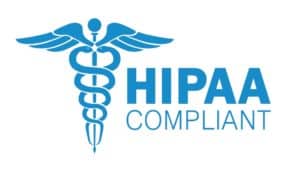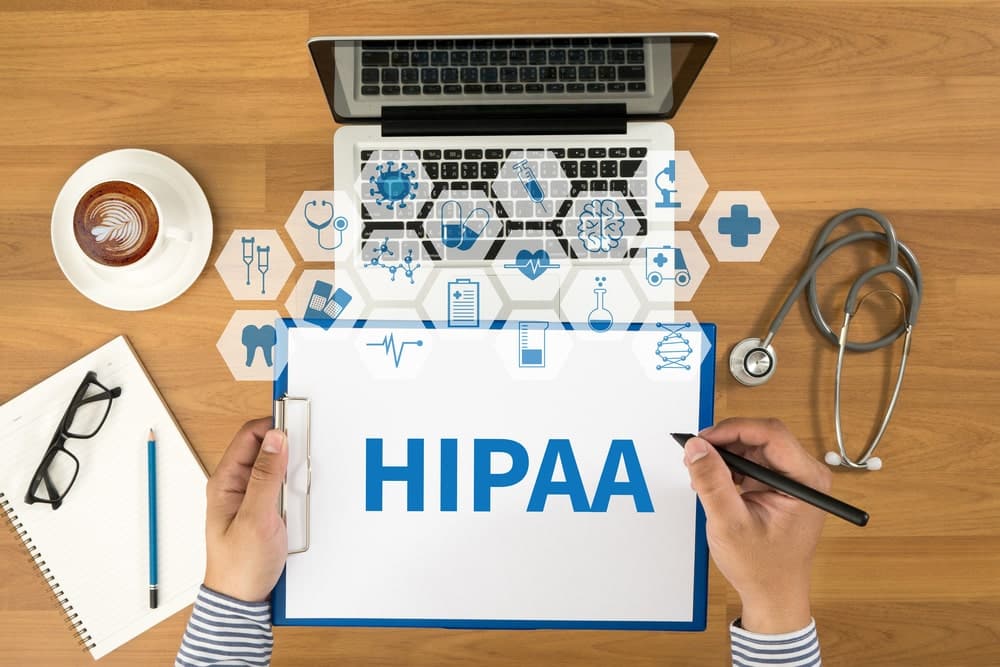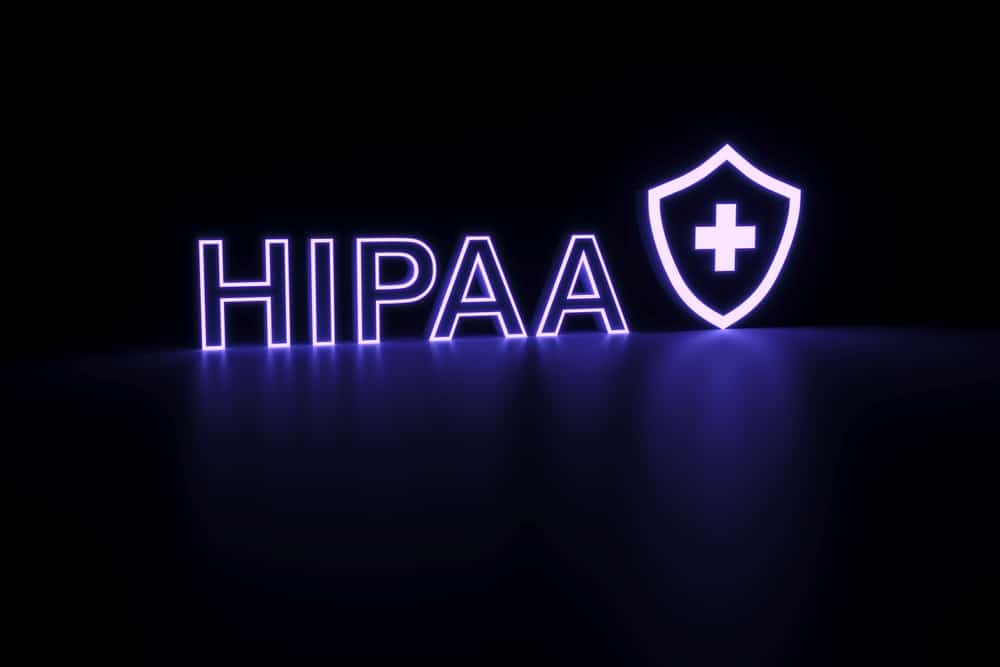Every day, a growing number of physicians and medical practices are leveraging the power of technology to help improve patients’ lives. From simple chatbots that can prompt dental implant pre-appointment consultations to artificial intelligence (AI) now being used in some practices for vision problems, technology has become commonplace in health care.
However, as technology continues to evolve and more medical information is available at our fingertips than ever before, the need for patient privacy and security has become increasingly important. Ensuring that medical facilities comply with HIPAA requirements becomes even more imperative to protect patients’ sensitive health data.
At Erickson Dental Technologies, we are dedicated to providing dentists with the most cutting-edge technology. We understand the value of patient privacy and security, so we want to make sure that our customers know their responsibilities as well. Dental practices can operate with confidence-knowing they have taken all possible steps to protect their patients’ sensitive health data at every step of the way.
What Is HIPAA?
Health Insurance Portability and Accountability Act (HIPAA) is a federal law that ensures patient privacy and security. The act was passed in 1996 to protect patients’ health information (PHI) by standardizing how medical facilities handle this information-from its collection to its storage to its disposal.
Compliance falls under the purview of the U.S. Department of Health and Human Services (HHS) and the Office for Civil Rights (OCR). While HIPAA is a federal law, it does not replace state medical privacy laws; rather, it establishes basic requirements that all states must follow to ensure the security of patient health information.
What Is the Importance of Being HIPAA Compliant?

In the event of a data breach, patient records are protected under HIPAA’s Breach Notification Rule. This means that dental practices must report any breaches of PHI to both HHS and the affected patient(s) within 60 days or face penalties (two years in prison or $250,000 for individuals and up to $500,000 for organizations).
A dental practice can lose PHI without ever experiencing a breach. When employees leave the practice, they may take patient PHI with them (intentionally or not), leaving the practice open to HIPAA violations even if it has taken all necessary precautions to protect this information.
To help avoid violations and security issues, dentists must focus on four main areas of HIPAA compliance:
- Administrative safeguards: This includes policies and procedures to protect patient information. For example, a dental practice may choose to implement computer safeguards such as encryption (to prevent data theft) and strong passwords (to avoid unauthorized logins).
- Physical safeguards: This pertains to the physical security of patients’ PHI. While storage devices such as hard drives and memory can be encrypted, the data is still susceptible to theft. Physical security features such as locks on cabinets and CCTV offer extra protection against unauthorized access.
- Technical safeguards: This includes software, firewalls, intrusion detection systems, system activity monitoring, and network segmentation to prevent potential hackers from breaching a practice’s system.
- Organizational requirements: These requirements are specific to the dental practice. For example, a practice must establish who has access to PHI and how it is stored and implement policies that define authorized use of PHI.
HIPAA requires that all users obtain training on HIPAA rules and regulations. They must have a clear understanding of the security required to protect PHI from users and those with remote access.
Five Technical Safeguard Standards Dentists Must Comply With
As technology evolves, so do the demands placed on medical practices. However, there are five standards that all doctors must comply with to ensure patient privacy and security. Let’s take a look:
1. Transmission Security
This standard includes the physical, technical, and administrative safeguards that must be used when transmitting ePHI. These include:
- Using strong encryption to secure data as it passes from a medical device to an outside service provider (e.g., email)
- Preventing unauthorized access through physical measures like a locked cabinet
- Restricting employees’ access to data via user authentication (e.g., username and password) and strong passwords
- Keeping up-to-date on patches and updates for both hardware and software (i.e., antivirus and firewall installations)
2. Audit Controls
This standard involves creating an accounting of ePHI access. While this may seem simple in theory, it can be challenging to keep track of which users have accessed data and when. However, this is key to ensuring patient privacy because it shows that employees are only accessing the information for legitimate business reasons and not using it improperly or sharing it with outside parties.
3. Integrity
This safety standard ensures that PHI is not altered or destroyed in an unauthorized manner. It also includes measures for ensuring the integrity of ePHI, such as:
- Limiting access to ePHI to only those individuals who need it (e.g., updating your employee manual with roles and responsibilities)
- Marking documents as “read-only” after a certain period
- Backing up data and storing it securely offsite
4. Person or Entity Authentication
This standard requires that healthcare organizations authenticate users before granting them access to ePHI. This can include:
- Requiring passwords for all devices-including mobile phones, tablets, and laptops (wherever PHI is stored)
- Requiring users to re-authenticate before accessing new data or devices
- Monitoring employees’ access to PHI and taking disciplinary measures if necessary
5. Access Control
This standard ensures that only the right people have access to the right data at all times. It’s also about protecting PHI when it’s not in use. This includes:
- Mandating that passwords must be changed periodically
- Implementing policies restricting access to PHI during non-business hours and/or after leaving the organization (i.e., remote log-out)
- Creating a “need to know” culture for all employees, where only those who need access to data to do their jobs are allowed access
Complying with all five of these standards is the only way doctors can ensure that PHI is protected. With health care fraud remaining a top concern among law enforcement agencies, physicians must take steps to safeguard their data and avoid serious penalties for noncompliance.

Why Work With Erickson Dental Technologies
Erickson Dental Technologies is a leading provider of medical device technology to the dental industry. Their services range from practice management software to full-service IT outsourcing, including HIPAA compliance solutions and more. Erickson Dental Technologies has helped dental offices effectively implement their workflows while streamlining software and services operations.
Working with a managed IT service provider like Erickson Dental Technologies can help you and your organization comply with HIPAA standards and avoid potentially costly fines. With an experienced, knowledgeable team of industry experts on board, Erickson Dental Technologies has the tools to assess medical practices’ current security protocols and recommend new ways to safeguard data at every step of the way.
If you’re looking for an IT provider that can help you avoid HIPAA penalties and ensure that your practice runs smoothly, contact us today.


